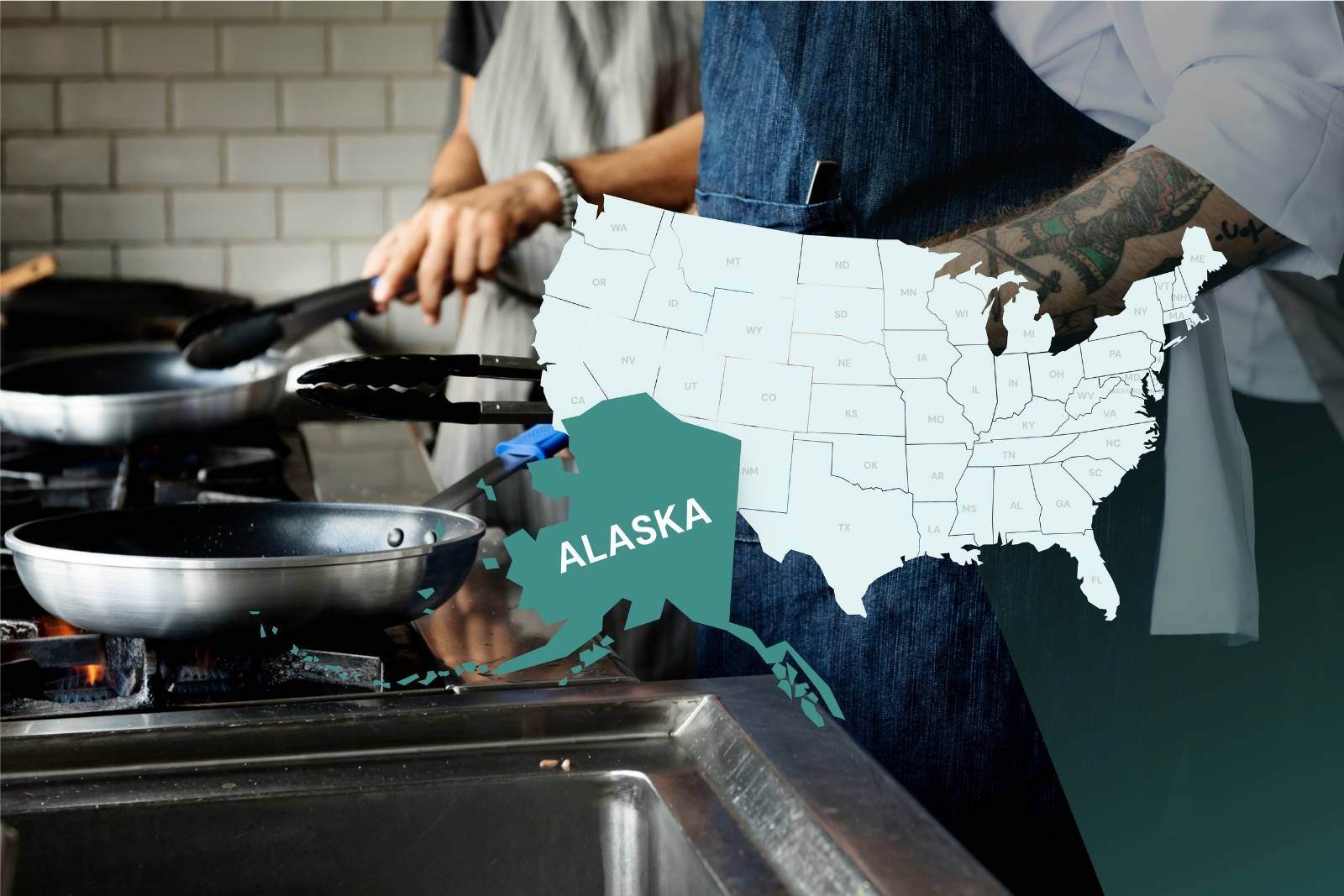Alaskan salmon is only the tip of the iceberg when it comes to the seafood selection at foodservice establishments in The Last Frontier. However, no one could enjoy the state’s coastal delights without first feeling secure about the food safety practices in Alaska’s food industry.
Food safety is essential to the success of every food business–and more critical than ever since the U.S. Centers for Disease Control (CDC) estimates one in six people get sick each year from a foodborne illness.
Alaska’s Department of Environmental Conservation works to provide clear safety guidance to food establishments in the state. If you work in Alaska’s food industry, you may be curious about what training or certifications you need to comply with the state’s requirements. Read on to learn more about Alaska’s food safety regulations, including:
Which version of the FDA Food Code is used in Alaska?
Does Alaska require food handler training?
Does Alaska require allergen awareness training?
Does Alaska require food manager certification?
Which version of the FDA Food Code does Alaska use?
The U.S. Food and Drug Administration (FDA) oversees the model Food Code for the entire country. This lengthy document focuses on preventing and mitigating the risks of foodborne illnesses. The FDA updates the code every two years to ensure that it continually evolves alongside food safety science.
Chapter 31 of the Alaska Administrative Code, the Alaska Food Code, is based on the 2005 FDA Food Code.1,2 Technically, the state did not adopt the FDA Food Code but incorporated elements from its guidance into its regulations.
The 2005 FDA Food Code does not require training for food workers, but Food Protection Manager Certification is one option for demonstrating knowledge of preventing foodborne illnesses, applying HACCP principles, and the Food Code itself.
Read on to learn which FDA Food Code recommendations the Alaska Department of Environmental Health (ADEH) incorporates into its guidance–and how they differ.3
Does Alaska require food handler training?
Yes, food handlers must obtain a Food Worker Card within thirty days of hire in Alaska. However, you can only earn a Food Worker Card through the state’s training and exam program. These cards must be renewed every three years.
How do I get an AK Food Worker Card?
The ADEH provides a study handbook and a practice test.4 The official test has twenty questions, and you must answer fifteen correctly to pass. There is no limit to the number of times you can take the test.
There are in-person and online options. Under the Americans With Disabilities Act, certain people may have the test requirement waived. In some cases, demonstrating knowledge of food safety may be enough to earn a Food Worker Card without taking the exam.
Does Alaska require allergen awareness training?
No, formal food allergen awareness training is not required in Alaska. However, allergies to finned fish and shellfish are becoming more common, making proactive preparation an important safeguard for protecting your customers from allergic reactions and anaphylaxis.
Does Alaska require food manager certification?
Yes, in Alaska, food service establishments that prepare or serve unwrapped, unpackaged food must have at least one certified food protection manager on staff. These managers are responsible for supervising and managing a food business and must be involved in the establishment's daily operations.
You must pass an ANSI National Accreditation Board (ANAB) accredited exam every five years to earn and maintain this credential.3
In Alaska, a person in charge must be present during all hours of operation; however, that does not mean the certified food protection manager must be on-premise during operating hours. It simply means that someone with authority is present to direct food preparation activities and oversee corrective actions to protect food safety.
There are food manager training programs, like Trust20’s, that ADEH suggests managers take to enhance their food safety knowledge and prepare for success in the exam experience.
The takeaway
Alaska may have used an older version of the FDA Food Code as a framework for food safety regulations, but the state goes above and beyond regarding training and certification requirements for food workers. While federal and state guidelines may differ, high food safety standards protect public health and help to ensure the long-term success of the food industry.
Sources:
-
FDA: 2005 Food Code
-
The Alaska State Legislature: Administrative Code, Chapter 31
-
Alaska Division of Environmental Health: Food Safety and Sanitation Program
-
The Alaska Division of Environmental Health: Food Worker Cards
-
The Alaska Division of Environmental Health: Certified Food Protection Manager





.png)

.png)
